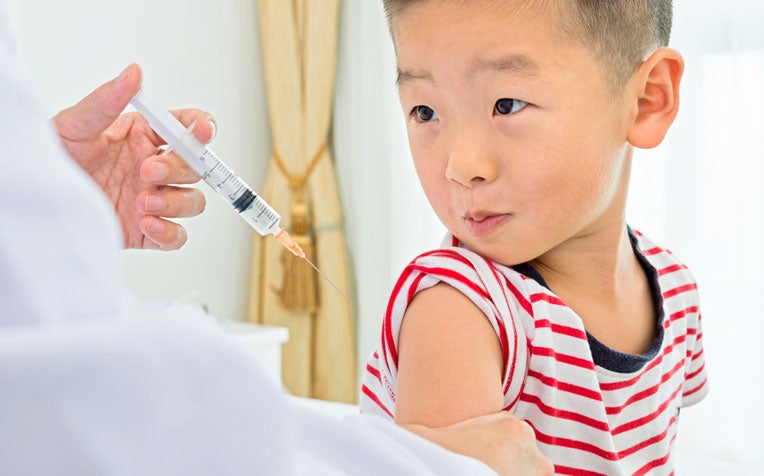
Pneumococcal disease (PD) What you need to know about PD.
When someone sneezes or coughs, a parent is wary of the child catching the flu and instinctively moves the child away. One such illness that can be contracted through direct contact or droplets from a sneeze or cough is the pneumococcal disease (pronounced “NEW – MO – KOK – CAL”).
What is the pneumococcal disease (PD)?
Pneumococcal disease (PD) is much more serious than the common flu. It’s a disease caused by the Streptococcus pneumoniae (pneumococcus) bacteria that can lead to serious conditions such as pneumonia (affecting lungs), meningitis (affecting the linings of the brain and spinal cord), bacteraemia (affecting the blood), acute otitis media (affecting the middle ear) and sinusitis (affecting the sinuses).
The symptoms vary depending on the body system affected and generally include fever, lethargy, drowsiness, irritability, chills with shaking or trembling, as well as chest pain, coughing, shortness of breath, rapid breathing and increased heart rate.
As the symptoms are somewhat similar to those of flu, the diagnosis of pneumococcal disease is not as straightforward. If the symptoms persist despite treatment, a repeat consultation or further investigations may be warranted.
Who is susceptible to pneumococcal disease?
Susceptibility to PD is higher among:
- Infants and young children below 5 years of age
- Children attending infant care or child care centres
- Children with weaker immune systems due to chronic medical conditions
- Children with a history of middle ear infection; and
- Adults older than 65 years
Complications caused by pneumococcal disease
Dr Thoon Koh Cheng, Head and Senior Consultant at the Infectious Disease Service, KK Women’s and Children’s Hospital (KKH), a member of the SingHealth group, explained that complications among children with pneumococcal disease can range from meningitis to pneumonia and even death in some cases. PD also carries a risk of lifelong complications such as hearing loss, mental, speech or movement disability, or decreased exercise tolerance. The cost and hassle associated with a pneumococcal vaccination cannot compare to hospitalisation costs and the pain and suffering that an infection inflicts on the child and the parents.
The good news is, pneumococcal disease (PD) can be prevented through vaccination. Read on to learn more about the PD vaccine.
Ref: S13
Contributed by














 Get it on Google Play
Get it on Google Play